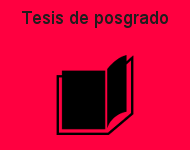4 documentos corresponden a la consulta.
Palabras contadas: game: 16, theory: 231
Jeronimo, G. - Perrucci, D. - Sabia, J.
Comput Math Appl 2009;58(6):1126-1141
2009
Temas: Complexity - Multihomogeneous resultants - Nash equilibria - Noncooperative game theory - Polynomial equation solving - Complexity - Multihomogeneous resultants - Nash equilibria - Noncooperative game theory - Polynomial equation solving
Descripción: We present an algorithm to compute a parametric description of the totally mixed Nash equilibria of a generic game in normal form with a fixed structure. Using this representation, we also show an algorithm to compute polynomial inequality conditions under which a game has the maximum possible number of this kind of equilibria. Then, we present symbolic procedures to describe the set of isolated totally mixed Nash equilibria of an arbitrary game and to compute, under certain general assumptions, the exact number of these equilibria. The complexity of all these algorithms is polynomial in the number of players, the number of each player's strategies and the generic number of totally mixed Nash equilibria of a game with the considered structure. © 2009 Elsevier Ltd. All rights reserved.
...ver más Tipo de documento: info:ar-repo/semantics/artículo
Burgos, E. - Ceva, H. - Perazzo, R.P.J.
Phys Rev E. 2002;65(3)
2002
Temas: Annealing - Computer simulation - Costs - Game theory - Mathematical models - Optimization - Perturbation techniques - Temperature measurement - Bar attendance model (BAM) - Cost functions
Descripción: We study a cost function for the aggregate behavior of all the agents involved in the minority game (MG) or the bar attendance model (BAM). The cost function allows us to define a deterministic, synchronous dynamic that yields results that have the main relevant features than those of the probabilistic, sequential dynamics used for the MG or the BAM. We define a temperature through a Langevin approach in terms of the fluctuations of the average attendance. We prove that the cost function is an extensive quantity that can play the role of an internal energy of the many-agent system while the temperature so defined is an intensive parameter. We compare the results of the thermal perturbation to the deterministic dynamics and prove that they agree with those obtained with the MG or BAM in the limit of very low temperature. © 2002 The American Physical Society.
...ver más Tipo de documento: info:ar-repo/semantics/artículo
Figueira, S. - Gorín, D. - Grimson, R.
J. Comput. Syst. Sci. 2010;76(5):333-346
2010
Temas: Compositional semantics - Flattening operator - Full abstraction - Independence friendly logic - Regular formulas - Signaling - Valuation - Bound variables - Classical logic - Compositional semantics
Descripción: In classical logics, the meaning of a formula is invariant with respect to the renaming of bound variables. This property, normally taken for granted, has been shown not to hold in the case of Independence Friendly (IF) logics. In this paper we argue that this is not an inherent characteristic of these logics but a defect in the way in which the compositional semantics given by Hodges for the regular fragment was generalized to arbitrary formulas. We fix this by proposing an alternative formalization, based on a variation of the classical notion of valuation. Basic metatheoretical results are proven. We present these results for Hodges' slash logic (from which these can be easily transferred to other IF-like logics) and we also consider the flattening operator, for which we give novel game-theoretical semantics. © 2009 Elsevier Inc. All rights reserved.
...ver más Tipo de documento: info:ar-repo/semantics/artículo
Aldaz, M. - Heintz, J. - Matera, G. - Montaña, J.L. - Pardo, L.M.
J. Complexity 2000;16(1):2-49
2000
Descripción: We exhibit a new method for showing lower bounds for time-space tradeoffs of polynomial evaluation procedures given by straight-line programs. From the tradeoff results obtained by this method we deduce lower space bounds for polynomial evaluation procedures running in optimal nonscalar time. Time, denoted by L, is measured in terms of nonscalar arithmetic operations and space, denoted by S, is measured by the maximal number of pebbles (registers) used during the given evaluation procedure. The time-space tradeoff function considered in this paper is LS2. We show that for "almost all" univariate polynomials of degree at most d our time-space tradeoff functions satisfy the inequality LS2≥d8. From this we conclude that for "almost all" degree d univariate polynomials, any nonscalar time optimal evaluation procedure requires space at least S≥cd, where c>0 is a suitable universal constant. The main part of this paper is devoted to the exhibition of specific families of univariate polynomials which are "hard to compute" in the sense of time-space tradeoff (this means that our tradeoff function increases linearly in the degree). © 2000 Academic Press.
...ver más Tipo de documento: info:ar-repo/semantics/artículo






























